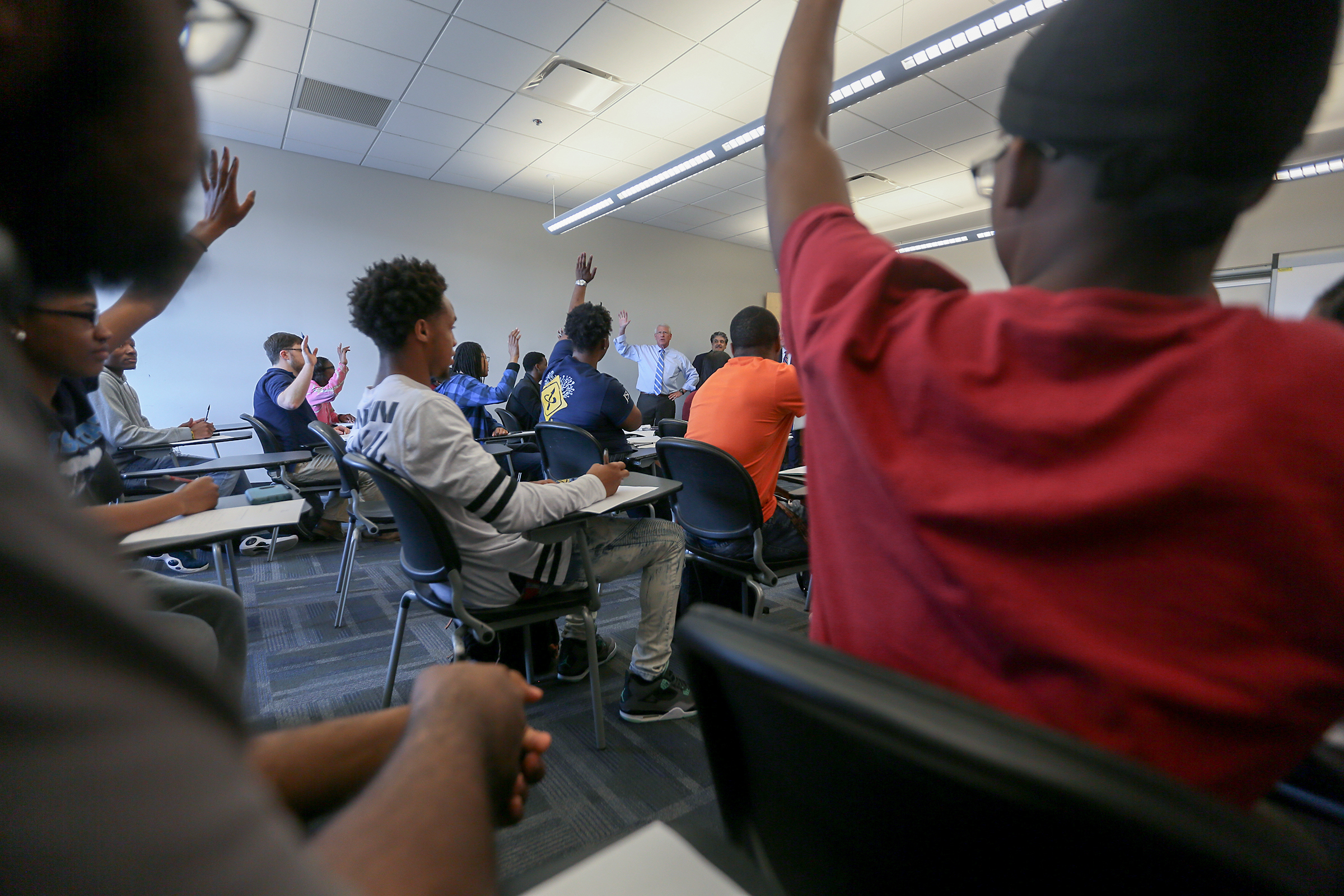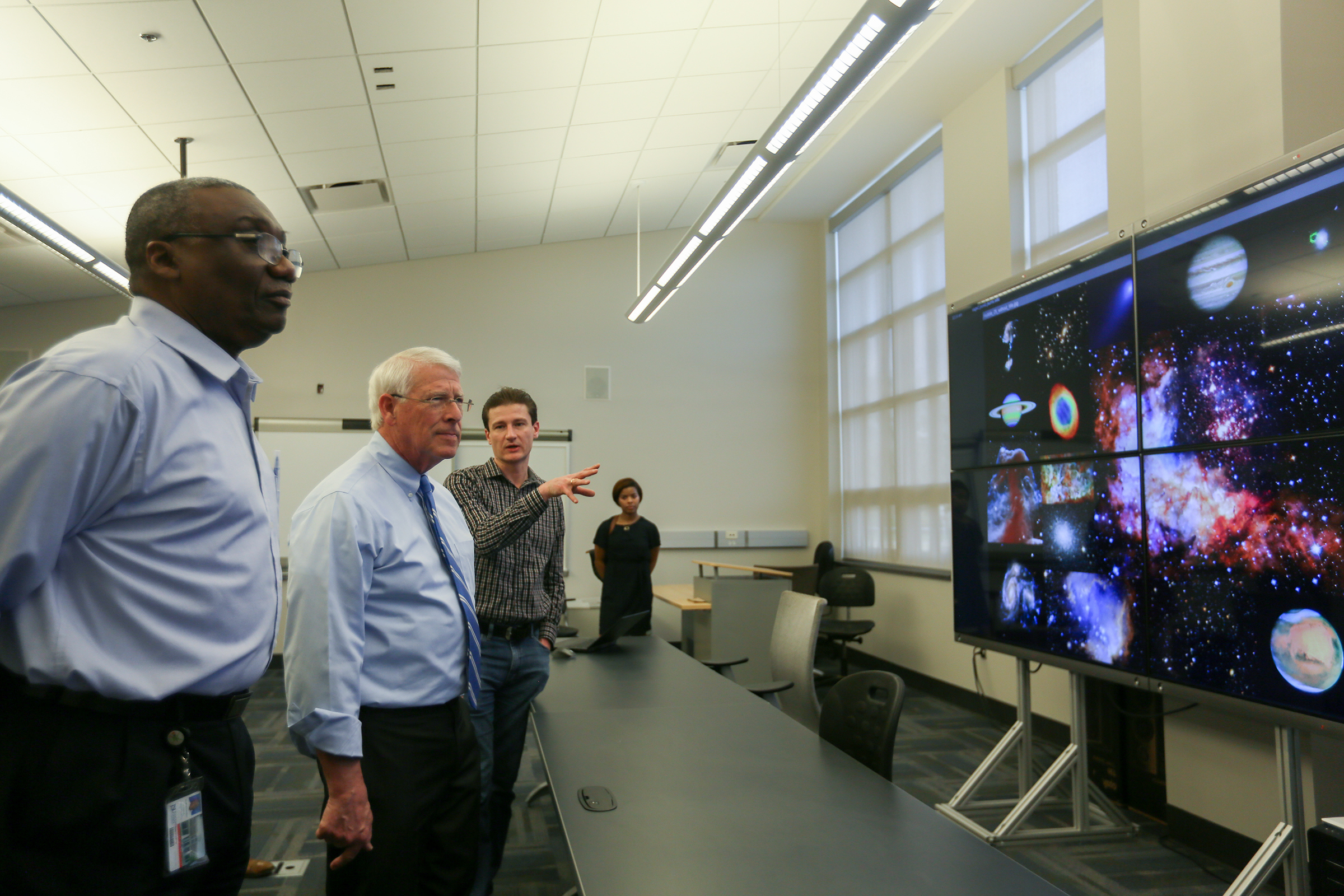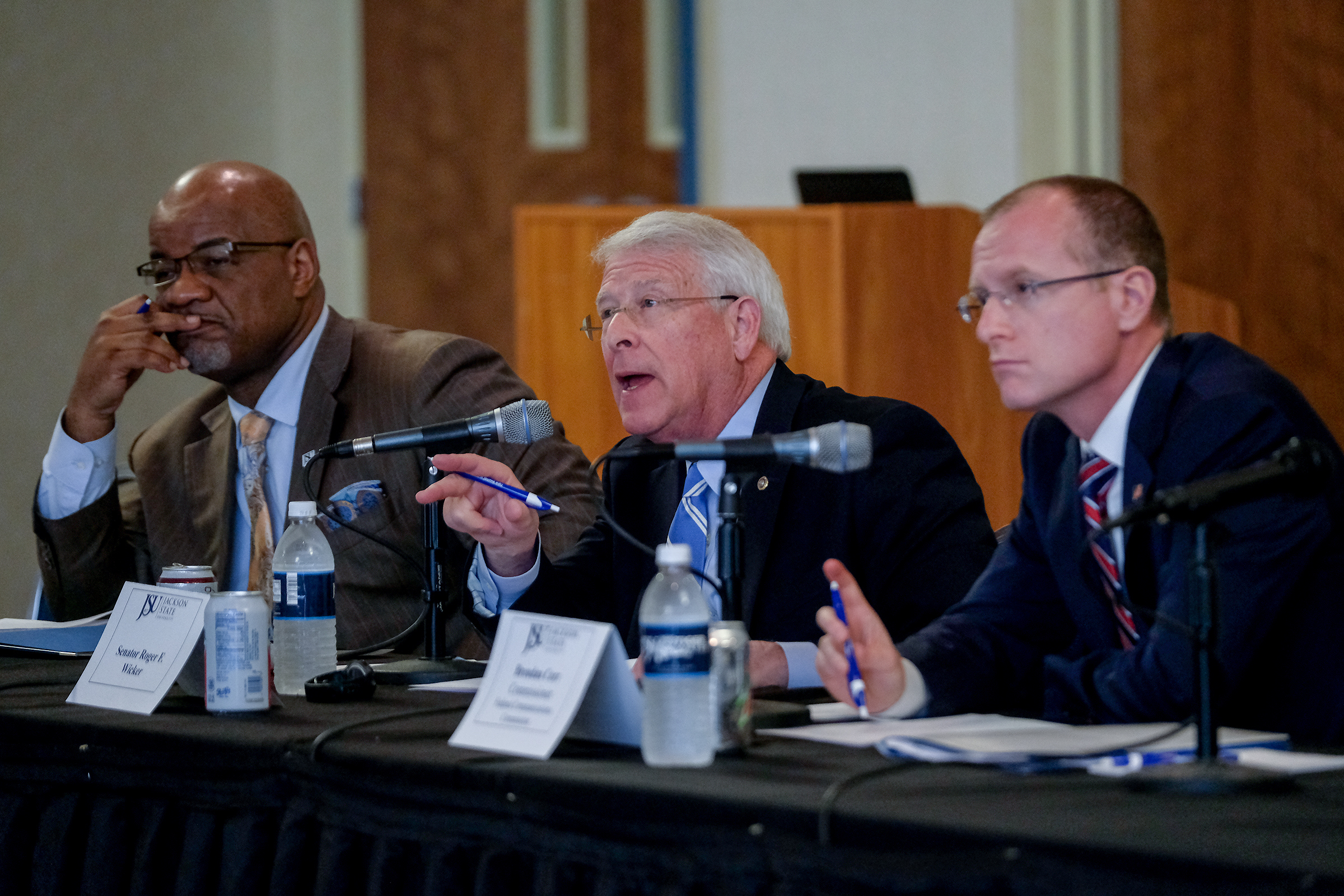
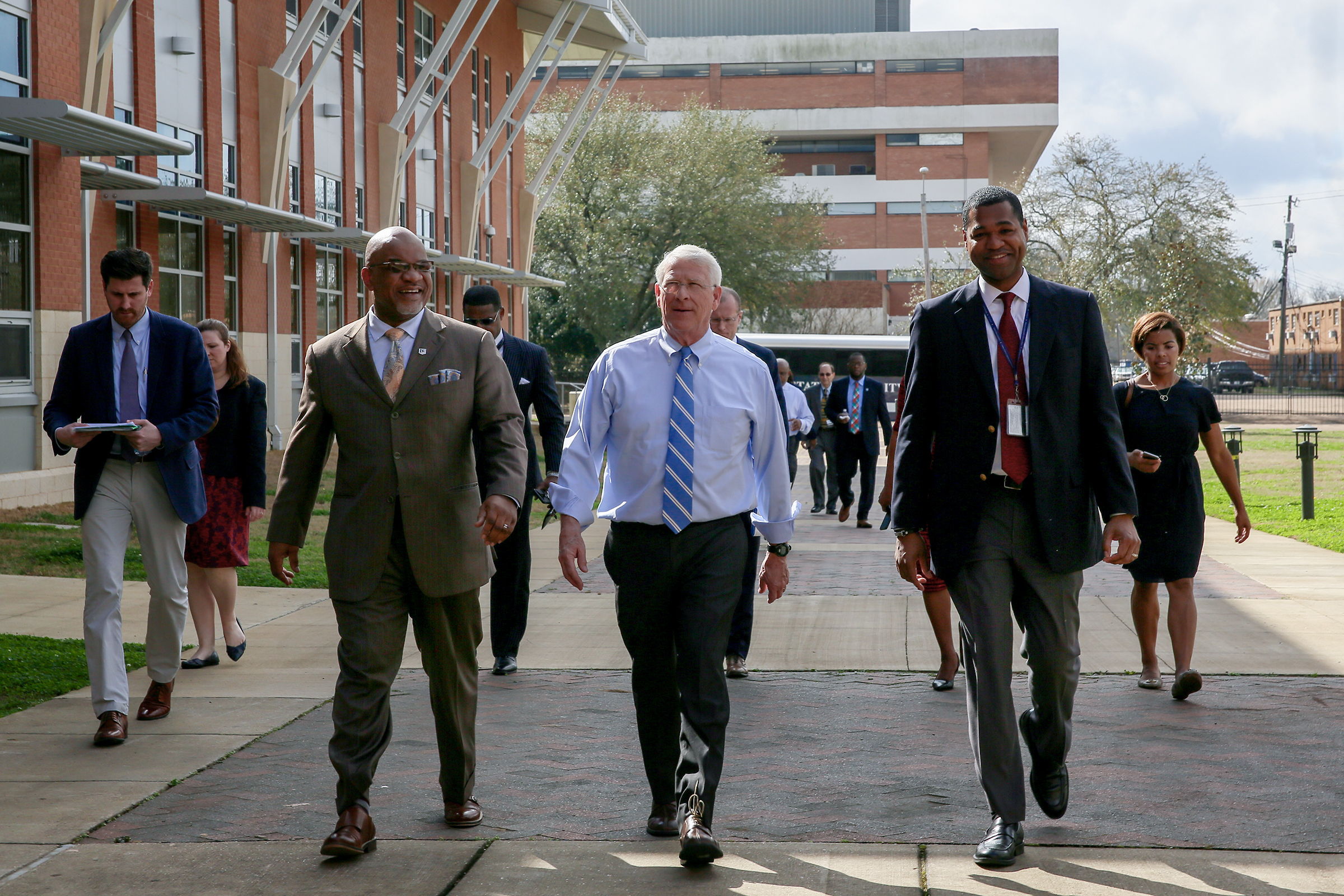
![]()
[hr]Jackson State University President William B. Bynum Jr. hosted a forum Monday with Mississippi U.S. Sen. Roger Wicker, who has called for an expansion of rural access to broadband technology and apprenticeships to close a skills gap in the state.
Bynum and other JSU experts touted the HBCU as an Apple-Distinguished School in an age of a digital divide and shortage of skilled laborers. They were among dozens of educators and corporate tech experts weighing in on how to advance the state through collaboration and coordination of resources.
Wicker, joined by FCC Commissioner Brendan Carr, said, “We’re here to start a dialogue among our educational institutions and telecommunications industry about the current state of workforce training and education.”
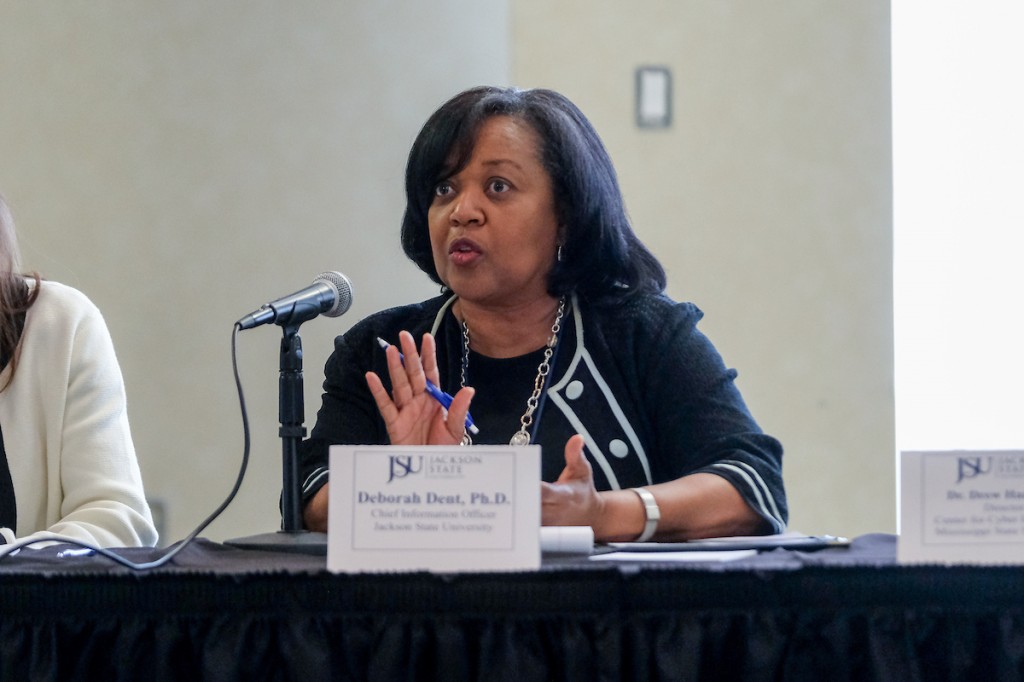
He said rural broadband is a priority for him and the commissioner. “We want to expand rural access to the information super highway.” Therefore, Wicker is promoting the Rural Wireless Access Act and the SPEED (Streamlining Permitting to Enable Efficient Deployment of Broadband infrastructure) Act.
“To get broadband in the community, we need to build the network. And, to build the network we need a trained workforce,” said Wicker, urging dozens of panelists to consider the following:
- Review the current state of workforce training and education in telecommunications and technology
- Improve skills for employment in telecommunications and technology
- Examine workforce education and industry collaboration and coordination
- Study the role of government in supporting workforce development and training programs
Carr declares that broadband creates high-paying jobs and opportunities for millions of Americans. “It’s especially important as we transition to what’s known as the fifth generation of wireless technology.” He said the new technology is more than just faster speeds and 5GS capability with the potential to increase competition. He said the expansion also would allow internet access that can connect billions of new devices.
He said Wicker and his colleagues on Capitol Hill are striving to streamline federal, state and local processes that will close the skills gap. Carr said he’s hopeful that the creation of apprenticeship programs will help solve these issues. “We need everyone to take an active role in supporting these programs so that every American has a fair shot at participating in this new economy.”
Dr. Deborah Dent, chief information officer at JSU, was among the many participants calling for a skilled workforce. She said, “I am like a lot of telecommunications vendors here because we employ our students and other people in this area. Information Technology is critical, and one of the most critical things that we’re concerned about is cybersecurity. So, we must make sure we can find students who are qualified for such jobs. It’s a growing area, and keeping those students locally is a challenge. We’re really interested in an apprenticeship program.”
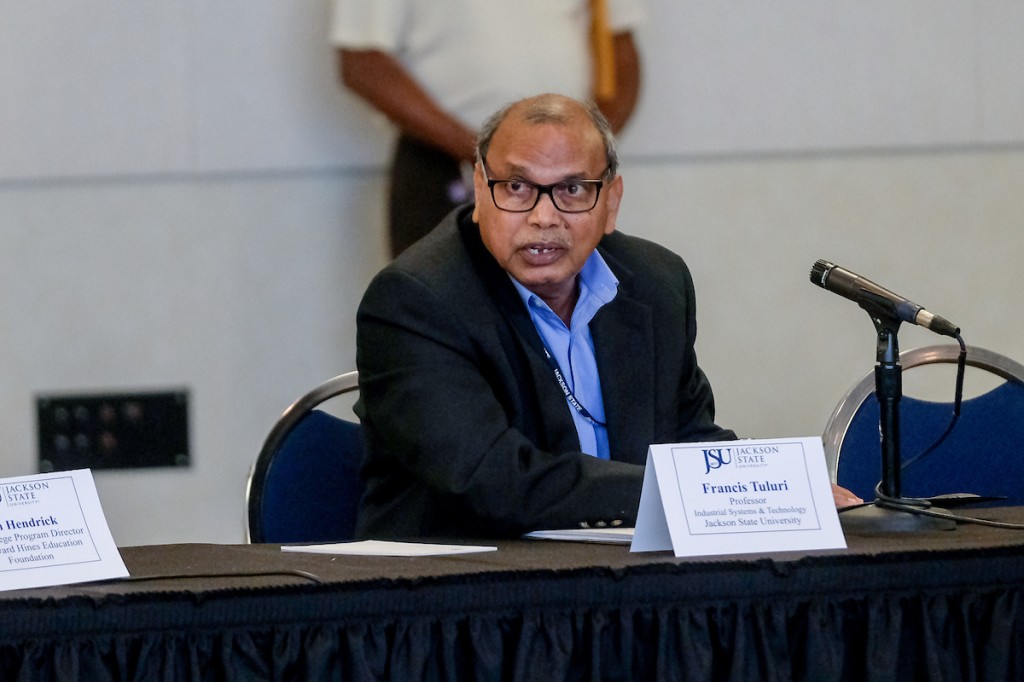
Following Dent, Mississippi State University’s Center for Cyber Innovation emphasized the demand and significance of certified cybersecurity programs.
Meanwhile, the Mississippi Coding Academies raised the alarm about firms leaving the state. The company reports that 1,100 coding jobs are currently available, and it is trying to help fill the gap by training young people right out of high school.
Academies co-founder Rich Sun said, “These kids don’t just want to start jobs; they want to start companies. They’re exceeding our expectations. … We have pushed the average, underprivileged Mississippi youth. … These students are hungry to prove themselves.” He said there is a $50,000 job opportunity for each of them but admits that many administrators and teachers have little to no awareness about the importance of coding.
Dr. Francis Tuluri, a JSU professor of Industrial Systems and Technology, said more internship opportunities would allow students to compete at a higher level and “take this industry more seriously.” He, too, is pushing for more career opportunities through apprenticeship programs.
Among the many entities providing feedback on workforce development:
- The Department of Education is targeting areas such as computer science, robotics and engineering
- The Skills Foundation of Mississippi aims to provide students with the necessary tools for achieving success, believing that young people will never pursue a career they don’t know anything about
- The Global Teaching Project seeks to bring high-level instruction to students everywhere in the world
- C Spire vows to start early to help young people fill jobs in the technology sector
- AT&T is working to “reskill” employees and deliver broadband services to schools
- Base Camp is dedicated to teaching coding and app development to young people
- The Mississippi Community College Board has expanded its apprenticeship opportunities and is working with a state workforce investment board to raise funding to develop opportunities for acquiring skills
Overall, Wicker said he’s encouraged by all the progress being made in Mississippi and believes apprenticeships and internships will expand and strengthen the workforce. He’s even urging Jackson State University students to apply to become congressional interns in his office. “You don’t have to be a Republican, Democrat or independent. Just take a little time from college to see how a senatorial office works.”
